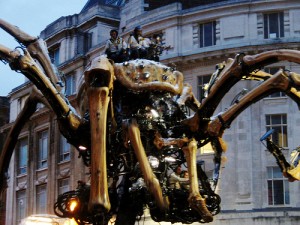Liverpool benefited from Capital of Culture year
It’s been a little while since I posted. Just because the previous post was the 100th (you have been counting, right?) doesn’t mean I’m quite finished with Liverpool Landscapes. I’m currently drafting the second Liverpool Maps post, and also preparing for a rather important personal event coming in the next few weeks. So I hope to get that post to you very soon, and then there’ll be another short gap before you hear from me again (say, late April).
But before I go, here’s a couple of snippets for you to enjoy.
Capital of Culture a success
Impacts 08, as regular readers will know, is a study being carried out by the University of Liverpool and Liverpool John Moores University to study Liverpool in the wake of 2008’s Capital of Culture.
They’ve already published a couple of reports, but the latest one gives details about the overall experience of the CoC title. A few choice stats (taken from the Guardian report):
- 34% increase in tourists (to 9.7m);
- 85% of Liverpool residents said it was a better place to live;
- 97% of visitors said they felt welcome.
This is a positive reaction, as there were many detractors in the years leading up the event. I felt, as the Guardian reports, that there were many who worried what would actually happen. There were forever the cynics who’d already decided we’d cock it up.
I remember one Pythonesque encounter on Radio Merseyside:
“One revolutionary pop band does not make a Capital of Culture.”
“What about the football teams?”
“Well, yeah, but two world class football teams and one revolutionary pop band do not make a capital of culture.”
“And the architecture?”
“OK. 2,500 listed buildings, two world class football teams, one revolutionary pop band…”
“And two of the greatest cathedrals-”
“…and two of the greatest cathedrals in the world do not make…”
And so it went on. I paraphrase, of course, but that was the gist of the thing.
Anyway, you can download the report from the Impacts 08 home page.
Liverpool Town Hall
I’ve pointed out Pete Carr’s photography before, but that’s no reason not to mention another. Here’s a great one of the town hall. Pete admits it’s hard to get a shot of the hall without Martin’s Bank in the background, but the bank’s such a great building that it serves as a classy backdrop to this tight shot.




